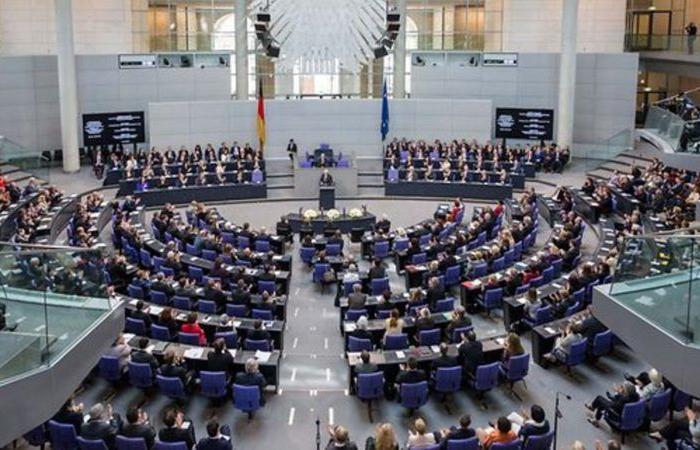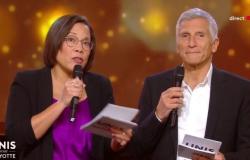Ahead of the vote in February, Germany’s two main parties unveiled their election manifestos on Tuesday (17 December), revealing divergent approaches to getting the country back on its feet.
Germans will vote following the breakup of Chancellor Olaf Scholz’s coalition government, at a time when the EU’s largest economy faces a second year of recession. The resulting budgetary constraints have limited the government’s ability to address geopolitical turmoil and high levels of irregular migration, key issues for voters.
Both the centre-left Social Democrats (SPD/S&D) of Scholz and their main challengers, the centre-right Christian Democrats (CDU/CSU/PPE) of candidate Friedrich Merz, have placed the economy and the recovery of growth at the center of their campaign, according to the drafts of the manifesto, seen by Euractiv.
However, their strategies for achieving this goal differ, leaving voters with the fundamental choice between muscular public spending and deregulation.
Economy: cut or grow
While the CDU/CSU manifesto focuses on a “broad relief” from taxes and bureaucracy, called “an agenda for workers”, the SPD appears ready to spend its way out of the crisis.
Merz’s party notably suggests reducing corporate taxation to a maximum of 25% (from around 30%), reducing income tax and eliminating a generous new unemployment benefits scheme.
Furthermore, the CDU/CSU promises to “immediately” block the incoming bureaucratic burdens and eliminate the German national law on supply chain due diligence, the EU sustainable finance taxonomy and the European standards for sustainability reporting companies (CSRD).
Meanwhile, the SPD is proposing a €100 billion “fund for Germany”, combining public and private resources. A “Made in Germany bonus” should encourage private investment through a 10% tax credit for business investment in Germany, presumably a “more targeted” measure than the reduction in corporate tax.
Parties have recently appeared to converge on a reform of the debt brake, Germany’s strict constitutional debt limit that has limited space for investment in the past. But the election posters highlight the divide again.
The SPD openly supports a reform of the measure to allow “productive spending and full employment”; the CDU/CSU simply says that it wants to “respect” it, in line with its focus on cuts.
Security and Ukraine: walking on eggshells
The future of the debt brake affects Germany’s most pressing spending needs, including its neglected defense infrastructure and support for Ukraine against Russia’s invasion.
While the war transformed Germany’s pacifist security policy – a process dubbed the “Zeitenwende” that produced a public defense investment fund worth €100 billion – the debt brake made sustained defense financing difficult .
The SPD reform would create exemptions for security expenses, among other things. Meanwhile, the CDU/CSU does not commit to a clear funding strategy, even though both parties want to “at least” reach NATO’s 2% spending target.
In particular, they shirk international commitments such as a new round of common EU debt to establish a European “defense union” that would make the bloc more independent of American security structures.
The caution extends to support for Ukraine, where the CDU/CSU has, in recent weeks, aligned itself with Scholz’s reserved politics, in line with voters’ war weariness.
Merz’s manifesto therefore contains no prior commitments to the supply of Toro or to a Ukrainian “victory” and NATO membership. It simply promises to “support Ukraine with all necessary diplomatic, financial and humanitarian resources and with the supply of weapons.”
The SPD manifesto also doubles down on the chancellor’s balancing act, which supports some military aid but not so much as to make Germany and NATO “part of the war”. Toro supplies are explicitly excluded.
Green transition: markets and emission quotas
The contrast between deregulation and interventionism also runs through the proposed energy and climate policies.
Germany’s economic difficulties are partly due to the fact that its industry lost access to cheap Russian energy due to Russia’s war in Ukraine.
The reduction of electricity grid tariffs is therefore a common priority of CDU/CSU and SPD. Both recognize the need to transition from fossil fuels to clean energy and reach the goal of zero emissions by 2050.
However, Merz’s party is banking on classic market mechanisms to combat emissions, with carbon taxation described as a “key tool”. It wants to reverse both the EU’s de-facto ban on the sale of new petrol cars by 2035 and controversial German legislation requiring fossil fuel heating to be replaced. A “review” of Germany’s possible return to nuclear energy is also planned.
Meanwhile, the SPD supports existing interventions and proposes an active role for the government in promoting rail networks and electric mobility, for example through state-funded incentives. Increased taxation on carbon dioxide emissions could be buffered for low-income families through a “climate allowance”.
However, both parties agree to protect the automotive industry, Germany’s largest industrial sector, and to avoid CO2 fines for carmakers that fail to meet Europe-wide emissions targets.
EU: the same anthem
Deregulation is also a focal point of the CDU/CSU’s European policy. The manifesto’s mantra is that the EU needs to focus on more important issues, reducing existing over-regulation by Brussels and suspending new regulatory requirements altogether.
Attention aside, the SPD and CDU/CSU are largely aligned in their European aspirations, as they stress the need for the EU’s most populous country to take a leadership role in Brussels amid global crises.
Merz, who has repeatedly criticized Scholz’s lack of European leadership, particularly wants to strengthen Germany’s notoriously fragmented cohesion in European affairs by concentrating more power in the Chancellery than in the Foreign Ministry.
Both parties declare themselves in favor of close coordination with their Weimar Triangle allies, France and Poland, further enlargement and institutional reform.
Irregular migration: continuity and change
In particular, there is one area where Merz’s CDU/CSU is pushing for a stronger role for both the government and the EU: irregular migration.
Last year, asylum claims rose to the highest annual level since the 2016 refugee crisis. The government has since cracked down, backed the EU’s controversial migration pact and reintroduced checks at all German borders. Asylum requests have started to decline.
Therefore, the SPD mainly builds on existing measures, stressing that there is now “much better management of irregular migration”.
The Christian Democrats, however, are pushing for more. A joint European “Rwanda model”, in which asylum seekers are sent to third countries for immigration procedures and receive asylum there, should dissuade migrants from crossing the Mediterranean.
The CDU/CSU also reassured European neighbors that Germany will support jointly funded EU external border protection and transform the border protection agency Frontex into a “real border police”.
Furthermore, the manifesto reiterates the proposal to reject irregular immigrants at the German border if they enter from a country deemed safe, a “de facto block on admissions”.
Read the original article here






